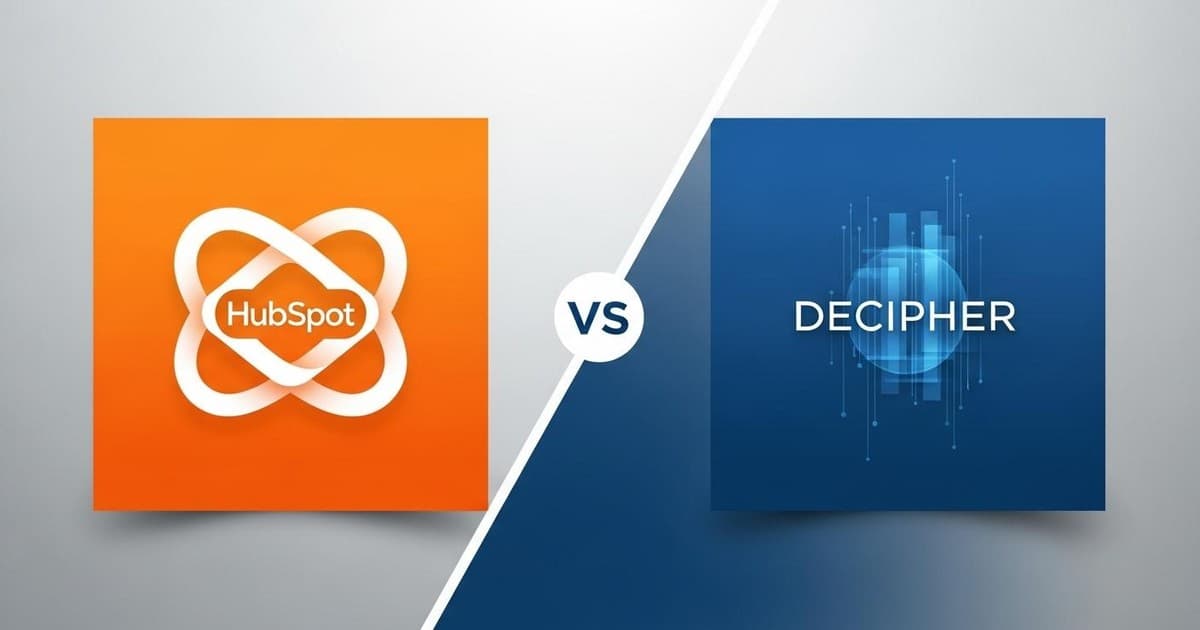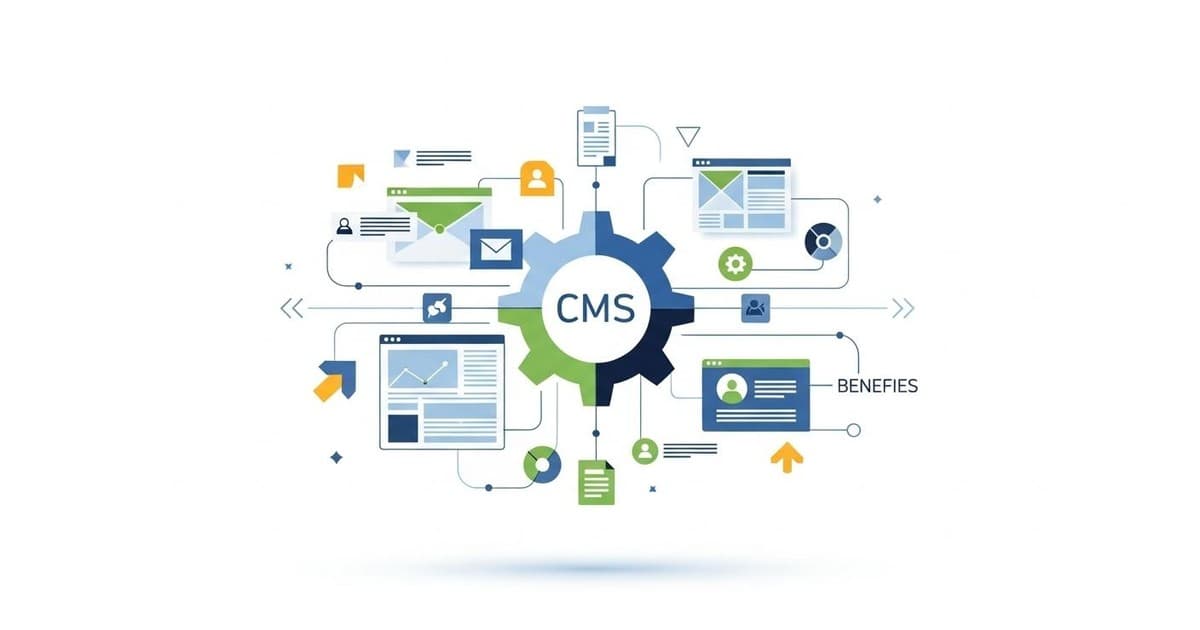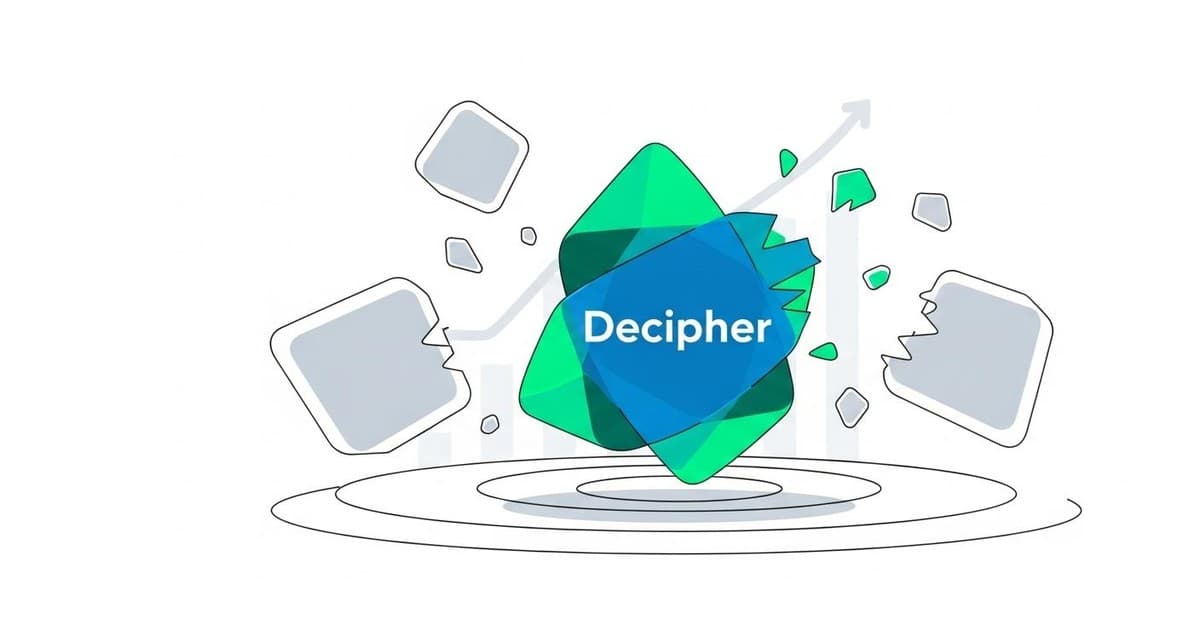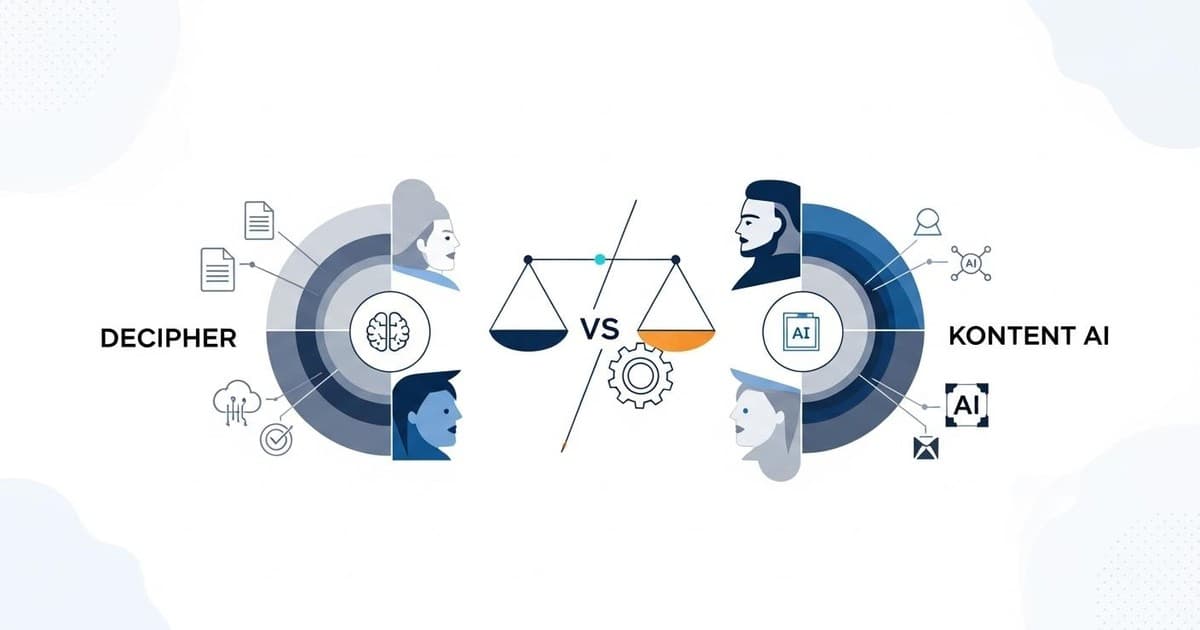
HubSpot vs Decipher: A Head-to-Head CMS Comparison
Two Philosophies, One Decision
Picture this: You're at a crossroads where two powerful content management philosophies meet. Down one path lies HubSpot CMS Hub—the Swiss Army knife of marketing platforms, offering seamless CRM integration and all-in-one convenience. Down the other, Decipher—the AI-native specialist, delivering cutting-edge content intelligence with complete ownership freedom.
HubSpot: The Integrated Champion
One Platform Rules All: Everything connects seamlessly within the HubSpot ecosystem
CRM Magic: Customer data flows effortlessly into content strategy
Proven Playbook: Established workflows that marketing teams know and trust
Decipher: The AI Innovation Leader
Intelligence First: Built from day one with AI at its DNA
Freedom to Scale: Unlimited users under fixed licensing—no seat penalties
Your Kingdom: Complete platform ownership on your infrastructure
The Real Business Impact
Traditional Thinking: "Let's find a CMS that works."
2025 Reality: "Let's find a CMS that transforms our entire content operation."
Your choice ripples through every aspect of your business:
Team Velocity: Will your creators spend time managing tools or creating magic?
Financial Freedom: Will growth mean celebration or budget anxiety?
Strategic Control: Will you adapt the platform to your vision or vice versa?
The AI Acceleration Factor
Here's where 2025 gets interesting: AI-powered content creation isn't coming—it's here. The companies winning today aren't just managing content; they're orchestrating intelligent content ecosystems that learn, adapt, and scale automatically.
The HubSpot Path: Leverage proven marketing automation within familiar territory
The Decipher Path: Pioneer AI-native content creation with unlimited growth potential
Your Content Revolution Awaits
This isn't just a vendor selection—it's choosing your content superpower. Will you optimize within established boundaries or redefine what's possible with AI-native intelligence?
What to Look for in a Modern CMS Platform
 Before diving into the comparison, it's essential to understand the key factors that separate truly effective content management systems from basic website builders. The best CMS platforms in 2025 must balance ease of use with advanced capabilities, while providing clear paths for growth and customization.
Before diving into the comparison, it's essential to understand the key factors that separate truly effective content management systems from basic website builders. The best CMS platforms in 2025 must balance ease of use with advanced capabilities, while providing clear paths for growth and customization.
AI-Powered Content Intelligence: Modern CMS platforms should offer intelligent content recommendations, automated quality scoring, and brand consistency enforcement. This isn't just about spell-checking—it's about systems that understand your brand voice and help maintain quality at scale.
Scalable Pricing Models: Look for platforms that won't penalize team growth with per-seat pricing. The best solutions offer transparent, predictable costs that align with business growth rather than team size, allowing you to scale without budget surprises.
Integration Flexibility: Your CMS should either provide comprehensive built-in tools or offer seamless integration capabilities with your existing tech stack. Avoid platforms that force you into vendor lock-in situations or require expensive workarounds for basic functionality.
Performance and Ownership Control: Consider whether you need complete control over your hosting environment and data. Some organizations require the ability to deploy on their own infrastructure for security, compliance, or performance reasons.
Developer and Marketer Balance: The ideal platform serves both technical and non-technical team members effectively, providing intuitive interfaces for marketers while offering the customization depth developers need for complex requirements.
HubSpot CMS Hub: The Marketing-First Platform

HubSpot CMS Hub positions itself as the ultimate marketing-centric content management solution, deeply integrated with HubSpot's comprehensive CRM and marketing automation ecosystem. For organizations already invested in HubSpot's methodology or those prioritizing marketing convenience over technical flexibility, it offers compelling advantages through its unified approach to content, leads, and customer relationships.
HubSpot's Core Strengths
The platform's greatest asset is its seamless integration across marketing, sales, and service functions. When you create content in HubSpot, you're not just publishing—you're feeding data directly into your CRM, enabling sophisticated personalization and lead tracking that would require complex integrations with other platforms. The drag-and-drop editor makes content creation accessible to non-technical team members, while built-in SEO recommendations and A/B testing capabilities help optimize performance without additional tools.
HubSpot's smart content features automatically personalize website experiences based on visitor data, lifecycle stage, and past interactions. This level of personalization, combined with native analytics and reporting dashboards, provides marketing teams with immediate insights into content performance and ROI. The platform also includes robust lead generation tools, from customizable forms to landing page builders, all feeding directly into the integrated CRM system.
HubSpot's Limitations
However, HubSpot's integrated approach comes with significant trade-offs. The per-seat pricing model can become expensive as teams grow, particularly for organizations that need many users but don't require full marketing automation features. Developer customization options are more limited compared to headless or API-first solutions, potentially frustrating teams with complex technical requirements.
The platform can also create vendor lock-in situations, where migrating away becomes costly and complex due to deep integrations and proprietary data structures. For organizations with existing marketing tech stacks or those preferring best-of-breed approaches, HubSpot's all-in-one model may feel restrictive rather than convenient.
Decipher: AI-Native Content Intelligence

Decipher represents a fundamentally different approach to content management, built from the ground up as an AI-native platform that transforms how organizations create, manage, and distribute content across multiple channels. Unlike traditional CMS solutions that retrofit AI features, Decipher's artificial intelligence capabilities are embedded throughout the entire content lifecycle, from creation to optimization.
Decipher's Revolutionary Approach
What sets Decipher apart is its comprehensive AI content intelligence that goes beyond basic automation. The platform provides intelligent content recommendations based on performance data, automated quality scoring that maintains brand consistency, and workflow orchestration that streamlines complex content operations. This AI-first approach enables marketing teams to produce enterprise-quality content at unprecedented speed while maintaining the high standards that drive results.
The platform's ownership model addresses one of the biggest pain points in SaaS: unpredictable costs and vendor dependency. By deploying on your own Google Cloud infrastructure with unlimited users under a transparent fixed-license model, organizations gain complete control over their content operations without per-seat pricing penalties. This approach is particularly valuable for rapidly scaling startups and enterprises that need maximum flexibility and cost predictability.
Decipher's multi-channel publishing automation ensures content reaches audiences across all relevant platforms while maintaining consistency and brand alignment. The comprehensive analytics provide deep insights into content performance, audience engagement, and optimization opportunities, helping teams make data-driven decisions about their content strategy.
Considerations for Decipher Implementation
While Decipher offers significant advantages in AI capabilities and ownership control, it requires a more strategic implementation approach. Organizations benefit most when they have clear content scaling challenges and the technical resources to leverage the platform's advanced customization options. The learning curve may be steeper for teams accustomed to simpler, more restrictive platforms, though the long-term productivity gains typically justify the initial investment in training and setup.
Teams considering Decipher should evaluate their current content operations and growth trajectory. The platform delivers maximum value for organizations that create substantial amounts of content, manage complex workflows, or require the flexibility to adapt their content management approach as business needs evolve. For more insights on AI-powered CMS comparisons, explore our detailed analysis of Decipher vs Kontent.ai.
Making the Strategic Decision for Your Organization

Choosing between HubSpot and Decipher ultimately depends on your organization's priorities, technical resources, and growth trajectory. Many organizations make the mistake of focusing solely on immediate ease of use without considering long-term scalability, cost implications, and strategic flexibility. The right choice aligns with both your current needs and future ambitions.
Choose HubSpot if you're primarily marketing-led, want immediate integration with CRM and sales processes, and prefer the convenience of an all-in-one platform over customization flexibility. HubSpot works best for organizations that fit well within its methodology and don't require extensive technical customization.
Choose Decipher if you need AI-powered content intelligence, want complete ownership and control over your platform, require unlimited user access without per-seat penalties, or have complex content operations that benefit from advanced automation and customization capabilities.
Consider your team structure and growth plans: Rapidly scaling organizations often find per-seat pricing models become prohibitively expensive, while teams with strong technical capabilities can leverage more flexible platforms for competitive advantages.
Evaluate total cost of ownership: Look beyond initial pricing to consider long-term costs, including user scaling, integration requirements, and the value of increased productivity through AI-powered features.
The future of content management lies in platforms that combine intelligent automation with strategic flexibility. Whether you choose the integrated convenience of HubSpot or the AI-native power of Decipher, ensure your decision supports not just today's content needs, but tomorrow's competitive requirements. For additional context on CMS selection criteria, this comprehensive guide provides valuable insights into the broader CMS landscape and selection factors.


